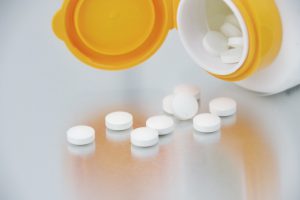2025.01.20
[Doctor Supervised] Recommendations for Supplements and Diets Effective Against Oxidative Stress
Recently, the term “oxidative stress” has been gaining attention. It refers to an imbalance caused by excessive levels of reactive oxygen species (ROS) in the body, overwhelming the antioxidant defense system. Oxidative stress is linked to aging and various diseases, making its reduction essential for maintaining health and beauty. Alongside reviewing lifestyle habits such as reducing alcohol consumption, quitting smoking, and engaging in moderate exercise, paying attention to diet and supplements can amplify the positive effects.
This article provides insights for those looking to combat oxidative stress through supplements and dietary choices, including key ingredients and tips for effective implementation.

Reducing oxidative stress involves not only improving lifestyle habits but also utilizing the antioxidant benefits of supplements and diet. However, as it’s challenging to measure changes in oxidative stress directly, some supplements on the market may lack verified efficacy.
Instead of relying on vague data or anecdotal advertisements, it’s important to choose products backed by scientific evidence and reliable research.
To make informed decisions, understanding key ingredients that combat oxidative stress and knowing what to consider when incorporating them into your routine is essential.

Here are some effective ingredients commonly found in supplements and their functions:
Coenzyme Q10 is vital for energy production in the body and helps neutralize ROS, making it a key anti-aging compound. It’s found in foods like sardines, but consuming the recommended daily amount would require eating about 20 sardines. Since levels of CoQ10 naturally decline with age, supplementation can be a practical option.
Known for its health and beauty benefits, vitamin C plays a crucial role in producing collagen, a protein essential for skin and vascular health. It helps prevent aging-related damage, such as wrinkles and arterial hardening. As vitamin C is easily excreted, taking it in smaller, consistent doses through food or supplements is ideal.
Found in eggs and meat, glutamine is the most abundant amino acid in the body. It supports muscle building, reduces fatigue, protects gastrointestinal mucosa, and aids recovery. While the body produces glutamine naturally, its levels may deplete during illness or intense physical activity, making supplementation beneficial.
Present in meat and wheat, L-cystine prevents melanin production (which causes dark spots) and promotes skin regeneration, contributing to a clearer complexion. It also aids in detoxifying acetaldehyde, a byproduct of alcohol metabolism.
Fumaric acid is an intermediate substance in the body’s energy production process and can act as a quick energy source. Its role in activating metabolic pathways helps break down lactic acid, enhancing fatigue recovery.
Known for its umami flavor in foods like kombu and shellfish, succinic acid is also an intermediate substance in energy production. It has shown potential anti-cancer properties and supports quick energy replenishment.
Vitamin B2, found in pork liver and other foods, maintains skin and mucosal health while promoting the growth of skin, hair, and nails. It also helps break down lipid peroxides, which contribute to arterial hardening, earning it the nickname “the beauty vitamin.”
Also known as vitamin B3, niacin boosts carbohydrate and fat metabolism, reducing cellular oxidative stress. It aids in alcohol breakdown, making it particularly beneficial for those who drink. Niacin dissolves in hot water, so be mindful of nutrient loss during cooking.

Foods with deep colors, such as blueberries, tomatoes, and carrots, are often rich in antioxidants. Nuts, which contain vitamin E, and polyphenols found in wine and green tea also have powerful antioxidative effects.
Excess carbohydrate intake can spike blood sugar levels, increasing oxidative stress. Replacing some refined carbs with whole grains, like brown rice, can help stabilize blood sugar and reduce stress on the body.
Supplements can bridge nutritional gaps, but their safety and efficacy must be evaluated carefully. Look for products backed by robust scientific evidence rather than anecdotal claims or flashy marketing. Consider contacting manufacturers for clarification if needed.
Incorporating antioxidant-rich foods and supplements into your daily routine can effectively reduce oxidative stress. Evaluate dietary habits gradually and choose supplements with a strong foundation in scientific research for the best results.